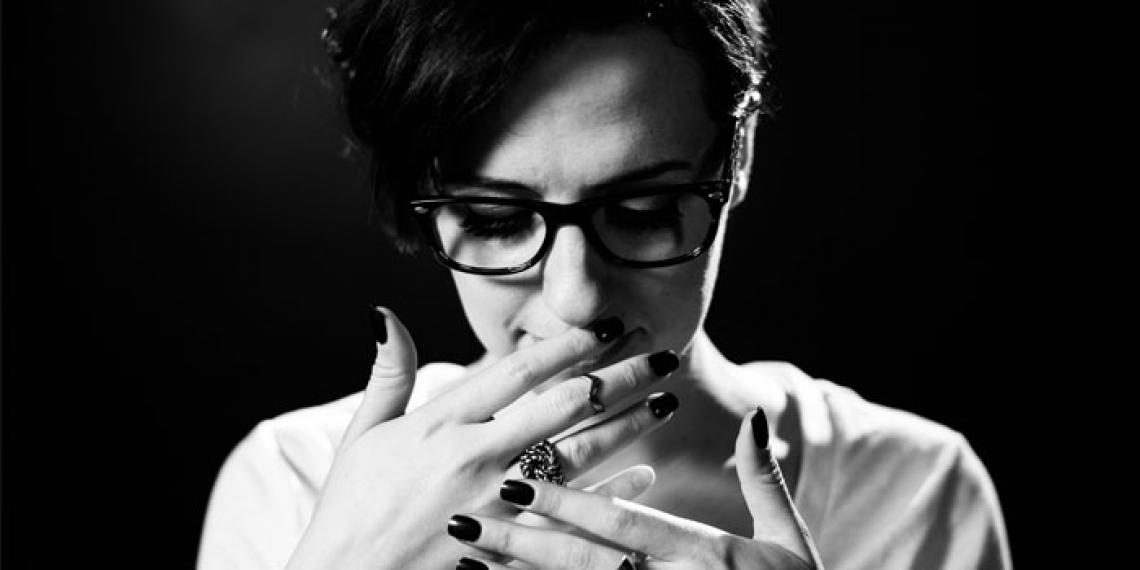You are here
Honest songs

When she burst onto the scene in 2010 with her debut album The House You’re Building, the American media were comparing her to New Zealand’s Brooke Fraser. Aside from the obvious musical and vocal similarities, it was Audrey’s approach of writing only sincere and heartfelt songs that drew the connection between the two artists. And, just like Brooke, you get that feeling from Audrey that the music is never her first priority. We caught up with this humble songstress to get to know the woman behind the honest songs.
So, I hear rumours that you started tinkling away at the piano at age two?
You heard right. My mum bought a piano when I was two and, according to her account, I climbed up one day in my diaper and started picking out tunes she recognised. Though I played and sang for many years after that, I didn’t start writing songs until I was 19.
A few years later you moved to Nashville to focus on music, but when did God enter the picture?
I had a moment of conversion at age five, but I didn’t really surrender my whole heart to Christ till I was 19. Actually, let’s be honest—I still haven’t surrendered my whole heart to him. That’s what sanctification is about. But at 19, I began the process of giving myself over to him in a real way.
I continue to have many small conversions as time passes. Some more ‘dramatic’ than others, I suppose. But mostly they are small and quiet opportunities, arising out of the mundane happenings of daily life, to crucify my pride and self-obsession.
Your music is typically characterised under the ‘Christian music’ genre, but you find yourself drawn more towards ‘church music’. How would you define church music?
‘Church music’, by my definition at least, is music that is specifically composed in some way for prayer and/or devotion. ‘Christian music’ has historically meant something like, music composed with the Christian listener in mind, but not necessarily meant for use in a church context.
I’m drawn to making church music for many reasons, but perhaps the biggest one is that, in looking at the historical Church, I see a pretty consistent pattern of there being two artistic paths for believers: one being church composing, and the other making art in the ‘mainstream’ arena. Caravaggio, Michelangelo and many others certainly made art that revealed their religious perspectives, but they did so in the general art world, not in a small cloistered bubble of religious artists making art for religious people.
I don’t think it’s the historic way of the Church [to make art solely for Christians] and I don’t think it’s a sustainable way to make art now. It’s working at the moment, but it’s shrinking all the time. I don’t think the Church was ever meant to make pop art for consumption by Christians alone.
On that note, your latest album, Fortunate Fall, resembles a collection of hymns rather than pop songs. What do you like most about making music for the church context?
‘Where two or three are gathered in my name, there am I in the midst of them.’
You left the major recording label Sparrow to release your recent album as an independent, crowd-funded project. How have you found that change?
An independent release is more work up front, but a record label release requires more compromise, and therefore I would say it is harder for the artist. I can’t speak for anyone else, but for me, being an independent musician has brought a much larger emotional/artistic return. [This time] it’s been really freeing to be in charge of the process. I found the entire journey of funding and making this album to be a very healing thing. I don’t think I was cut out for major labels.
What’s next on the cards?
I’m having a baby in April, so I’m going to be taking a lot of time off the road starting in January. But I’ll be recording an EP and releasing it around Easter-time and working on a pop project in the summer. The band’s name is LEVV—check us out on Facebook and Soundcloud.
By Hayden Shearman
Audrey Assad Fast facts
Albums: The House You’re Building (2010), Live from SoHo (2011), Heart (2012), Fortunate Fall (2013).
Nickname: Audrey the Astronaut, when I was 13.
Top musical heroes: Paul Simon, Sarah McLachlan, Rich Mullins
Favourite pastimes: Reading, cooking, writing.
When I was seven I wanted to be: A fashion designer (this is laughable—I have a really hard time dressing well).
When I am 70 I want to be: Healthy and enjoying my grandchildren, and still doing ministry.
For more info please visit www.audreyassad.com